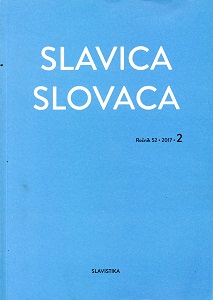О жалости и смежных понятиях в русском языковом сознании
On sense of zhalost′ (‘pity’) and related concepts in the Russian linguistic consciousness
Author(s): Andrey Evgenyevich BochkarevSubject(s): Semiotics / Semiology, Lexis, Cognitive linguistics
Published by: SAV - Slovenská akadémia vied - Slovenský komitét slavistov a Slavistický ústav Jána Stanislava SAV, v.v.i.
Keywords: Corpus linguisticus; linguistic consciousness; emotional concept; propositional model; conceptual metaphor; axiological conventions;
Summary/Abstract: This paper explores the ways of displaying zhalost′ (‘pity’) in the Russian language in order to show how the analyzed emotional concept varies in relation to the main values in some typical pity-situations. According to the National Russian Corpus zhalost′ (‘pity’) is related, in its most manifestations, to different concepts like compassion, sympathy, tenderness, love, affection as well as superiority, irony, anxiety, shame, humiliation, sadness, disappointment, disgust, pain and anger that refer to some typical pity-situations in which they occur. It is as if the personal world-mind, which selects words, were ruled, through a lexical representation, by a vast pattern-system as a basis of judgments about pity. As we shall see, this specific system or organization, characteristic for the Russian linguistic consciousness, gives us a long array of such and such occurrences and permit finally to understand that the traditional pattern-organization of pity as a compassion, sympathy, or love, changes in matter. It is not because it is variable, fuzzily and vague but because it is connected with some unusual concepts like superiority, disgust, or anger, which contrast with traditional ethical values and axiological conventions.
Journal: Slavica Slovaca
- Issue Year: 52/2017
- Issue No: 02
- Page Range: 110-121
- Page Count: 12
- Language: Russian

